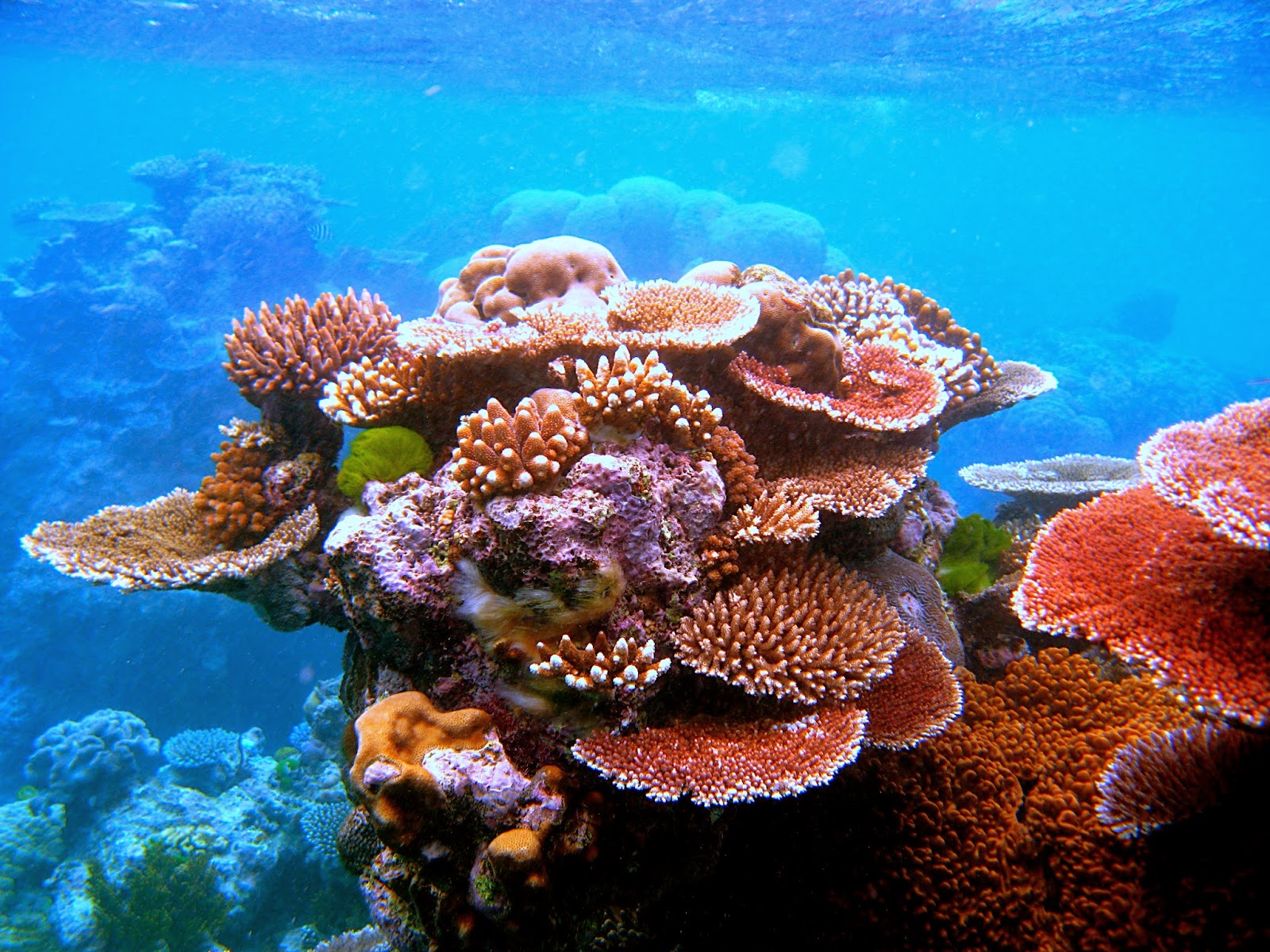Perhaps one of the biggest resources in the ocean is through marine life, particularly found in the fish below. Like most resources however, there are both positives and negatives that have to be considered.
Positives-Helps boost the economy because of an increase in jobs--consumers and productions
-Provides to be a beneficial food source
-Provides a gateway for recreation through fishing and other tourism activities
Negatives-Has to deal with multiple variables in the industry like fish populations, drought, availability, and consumption. For example, if a fish begins to decline in population, it may become endangered and then unable to be fished, hurting profits
-Depending on what is consumed, the fish could have high levels of mercury or other properties that are detrimental to human health
-Overfishing can disrupt the ecology of an environment altogether.
Fish interact with the hydrosphere and atmosphere because fish live in the hydrosphere, and have to have the proper amount of oxygen levels in the ocean in order to live. As humans pollute the ocean, traveling through the atmosphere into the hydrosphere, the water below is also negatively affected by its impact.
Fish are found in rivers, lakes, streams, ponds, and the ocean.
Fish are an important energy resource because of their role in the food cycle. Because they play such a key part in other animals ability to consume fish, if they were to be extinct, those animals would have to find an alternative food source, which would increase competition in the ecosystem and probably contribute to the extinction of many other fish.
Using the ocean as an energy resource definitely benefits the world that we live in, but because resources in the ocean are scarce, we have to be careful how we extract and handle them, as well as how much we take. It is important to remember that what we take, we cannot readily give back.
We need to keep fish safe, and in order to do that, we have to make sure that overfishing does not occur, that people are aware of their actions, and that pollution levels do not get too abundant.
Works Cited
"Fish: Friend or Foe?" The Nutrition Source. Harvard University, n.d. Web. 06 June 2014.
Mumbai, Swati. "Overfishing, Sewage Killing Marine Life on City Shores | The Asian Age." The Asian Age. N.p., 5 June 2014. Web. 06 June 2014.
Ossola, Alexandra. "Tackling the Overfishing Problem." » Scienceline. N.p., 20 May 2014. Web. 06 June 2014.










